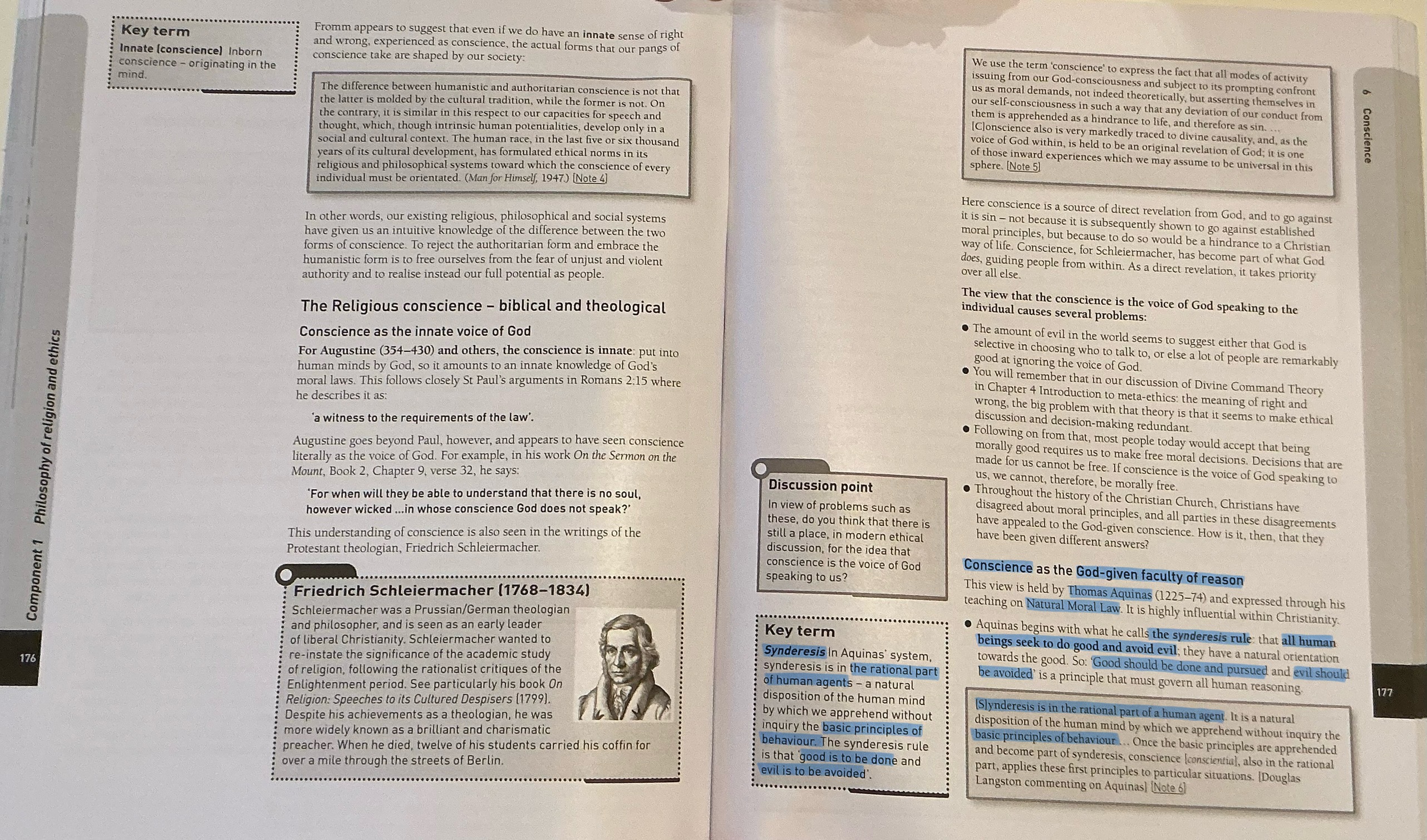Discuss the concept of conscience in relation to its innate qualities and moral implications as presented in the texts of Augustine and Schleiermacher.

Understand the Problem
The text appears to discuss the concept of conscience from a theological and philosophical perspective, addressing its innate qualities and its implications in moral reasoning, referencing figures like Augustine and Schleiermacher.
Answer
Augustine: innate voice of God; Schleiermacher: direct revelation from God.
Augustine views conscience as an innate voice of God within humans, guiding moral laws, while Schleiermacher sees it as a direct revelation from God. Both relate conscience to divine influence rather than solely human reasoning.
Answer for screen readers
Augustine views conscience as an innate voice of God within humans, guiding moral laws, while Schleiermacher sees it as a direct revelation from God. Both relate conscience to divine influence rather than solely human reasoning.
More Information
Augustine sees conscience as God's witness in us, while Schleiermacher considers it reflective of divine communication. This highlights a religious dimension in moral reasoning, placing emphasis on external, divine guidance.
Tips
A common mistake is to assume both thinkers see conscience purely as an innate human trait without divine aspects.
Sources
- Friedrich Daniel Ernst Schleiermacher - plato.stanford.edu
- The Dilemma of Conscience: From Paul and Augustine to Mencius - mdpi.com
AI-generated content may contain errors. Please verify critical information